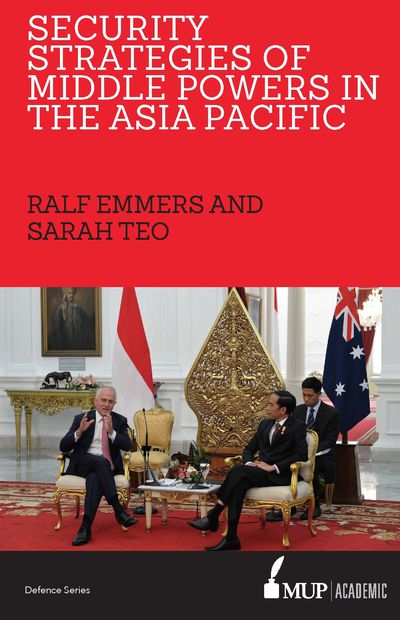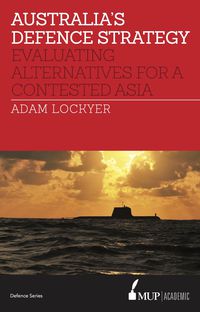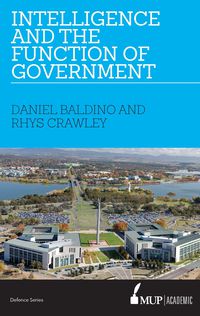Security Strategies of Middle Powers in the Asia Pacific
Ralf Emmers, Sarah Teo
Ebook
Out of stock
$31.99
$31.99
$31.99
$31.99
$31.99
$31.99
$31.99
$31.99
$31.99
$31.99
$31.99
Member discount
As an MUP member you get 40% off the RRP of all print books.
Member discount
As an MUP member you get 40% off the RRP of all print books.
Member discount
As an MUP member you get 100% off the RRP of all print books.
Member discount
As an MUP member you get 25% off the RRP of all print books.
Member discount
As an MUP member you get 25% off the RRP of all print books.
Member discount
As an MUP member you get 25% off the RRP of all print books.
Member discount
As an MUP member you get 40% off the RRP of all print books.
Member discount
As an MUP member you get 10% off the RRP of all print books.
Member discount
As an MUP member you get 35% off the RRP of all print books.
Member discount
As an MUP member you get 40% off the RRP of all print books.
Security Strategies of Middle Powers in the Asia Pacific
Ralf Emmers, Sarah Teo
Why do some middle powers adopt a regional security strategy that is more functional in nature while others seem to rely on a more normative one?
Security Strategies of Middle Powers in the Asia Pacific examines what drives the different regional security strategies of four middle powers in the Asia Pacific: Australia, Indonesia, South Korea and Malaysia.
Drawing on the extant middle power literature, the authors argue that the regional security strategies of middle powers could take two forms, namely, functional or normative. A functional strategy means that the middle power targets its resources to address a specific problem that it has a high level of interest in, while a normative strategy refers to a focus on promoting general behavioural standards and confidence building at the multilateral level.
This book argues that whether a middle power ultimately employs a more functional or normative regional security strategy depends on its resource availability and strategic environment.
Drawing on the extant middle power literature, the authors argue that the regional security strategies of middle powers could take two forms, namely, functional or normative. A functional strategy means that the middle power targets its resources to address a specific problem that it has a high level of interest in, while a normative strategy refers to a focus on promoting general behavioural standards and confidence building at the multilateral level.
This book argues that whether a middle power ultimately employs a more functional or normative regional security strategy depends on its resource availability and strategic environment.
Security Strategies of Middle Powers in the Asia Pacific examines what drives the different regional security strategies of four middle powers in the Asia Pacific: Australia, Indonesia, South Korea and Malaysia.
Drawing on the extant middle power literature, the authors argue that the regional security strategies of middle powers could take two forms, namely, functional or normative. A functional strategy means that the middle power targets its resources to address a specific problem that it has a high level of interest in, while a normative strategy refers to a focus on promoting general behavioural standards and confidence building at the multilateral level.
This book argues that whether a middle power ultimately employs a more functional or normative regional security strategy depends on its resource availability and strategic environment.
Drawing on the extant middle power literature, the authors argue that the regional security strategies of middle powers could take two forms, namely, functional or normative. A functional strategy means that the middle power targets its resources to address a specific problem that it has a high level of interest in, while a normative strategy refers to a focus on promoting general behavioural standards and confidence building at the multilateral level.
This book argues that whether a middle power ultimately employs a more functional or normative regional security strategy depends on its resource availability and strategic environment.
Ebook
Out of stock
$31.99
$31.99
$31.99
$31.99
$31.99
$31.99
$31.99
$31.99
$31.99
$31.99
$31.99
Member discount
As an MUP member you get 40% off the RRP of all print books.
Member discount
As an MUP member you get 40% off the RRP of all print books.
Member discount
As an MUP member you get 100% off the RRP of all print books.
Member discount
As an MUP member you get 25% off the RRP of all print books.
Member discount
As an MUP member you get 25% off the RRP of all print books.
Member discount
As an MUP member you get 25% off the RRP of all print books.
Member discount
As an MUP member you get 40% off the RRP of all print books.
Member discount
As an MUP member you get 10% off the RRP of all print books.
Member discount
As an MUP member you get 35% off the RRP of all print books.
Member discount
As an MUP member you get 40% off the RRP of all print books.











